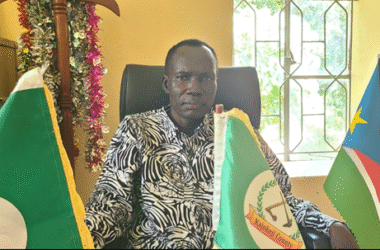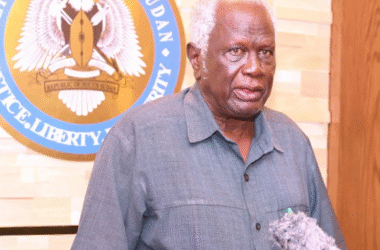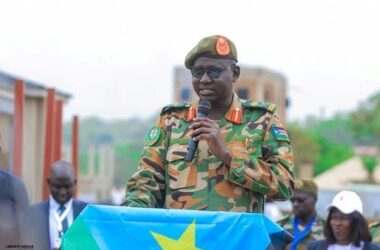By Kei Emmanuel Duku
United Nations Head of Mission in South Sudan (UNMISS) has urged the unity government to allocate necessary funds to the National Election Commission (NEC) in preparation for the country’s first-ever democratic elections in December 2026.
Addressing the press yesterday, head of UNMISS Nicholas Haysom stated that providing these funds is essential for effective voter registration planning and the establishment of NEC offices nationwide, along with the training of staff.
He said adequate funding is crucial for strengthening the legal and judicial systems, enabling them to manage pre- and post-election disputes effectively.
“Elections that don’t have the confidence of the population could be catastrophic for the country setting the country back into relapse into conflicts which outcomes we must strive to avoid because neither South Sudan nor the broader region can afford another bloody war,” said Haysom.
The UN Head of Mission in South Sudan expressed his gratitude to the NEC for releasing its detailed electoral plans and urged the government to urgently allocate funds to help the commission fulfil its mandates.
He said comprehensive voter registration is a very important electoral process which will help create a space where all the citizens particularly the most venerable and diverse ethnicities come together to vote and build a better future for which they cherish to live.
Haysom highlighted some of the critical areas that the NEC needs to address and sensitize public on the type of electoral systems that are convenient for the South Sudan context.
Haysom said area include how the internally displaced persons and refugees living abroad participate in the election, how would electoral disputes be settled, what are realistic timelines for publication of results and conditions for registering political parties before the December General Elections.
The UN head said another important consideration for conducting free and democratic elections that the electoral commission needs to consider is conducting a population census, a component that will help the commission determine the boundaries of the country.
The UN Special Representative of the Secretary-General noted that limited funding to the commission has affected civic education, particularly in the permanent constitution-making process.
He added that the mission will continue to support, convene, and prompt discussions on relevant topics such as federalism, governance, and fiscal devolution, enabling citizens to have the chance to define what appropriate governance structure is relevant for South Sudan.
As part of the continued support to the commission, apart from the programmatic activities support, Haysom stated that the UN Mission in South Sudan will invest in what he described as “brick-and-mortar investments” in the form of infrastructures support to the commission across the 10 states and 3 three administrative areas by building offices so as the states electoral offices to function efficiently.



